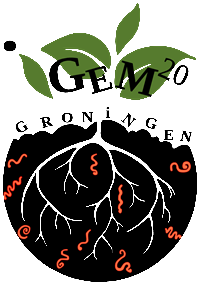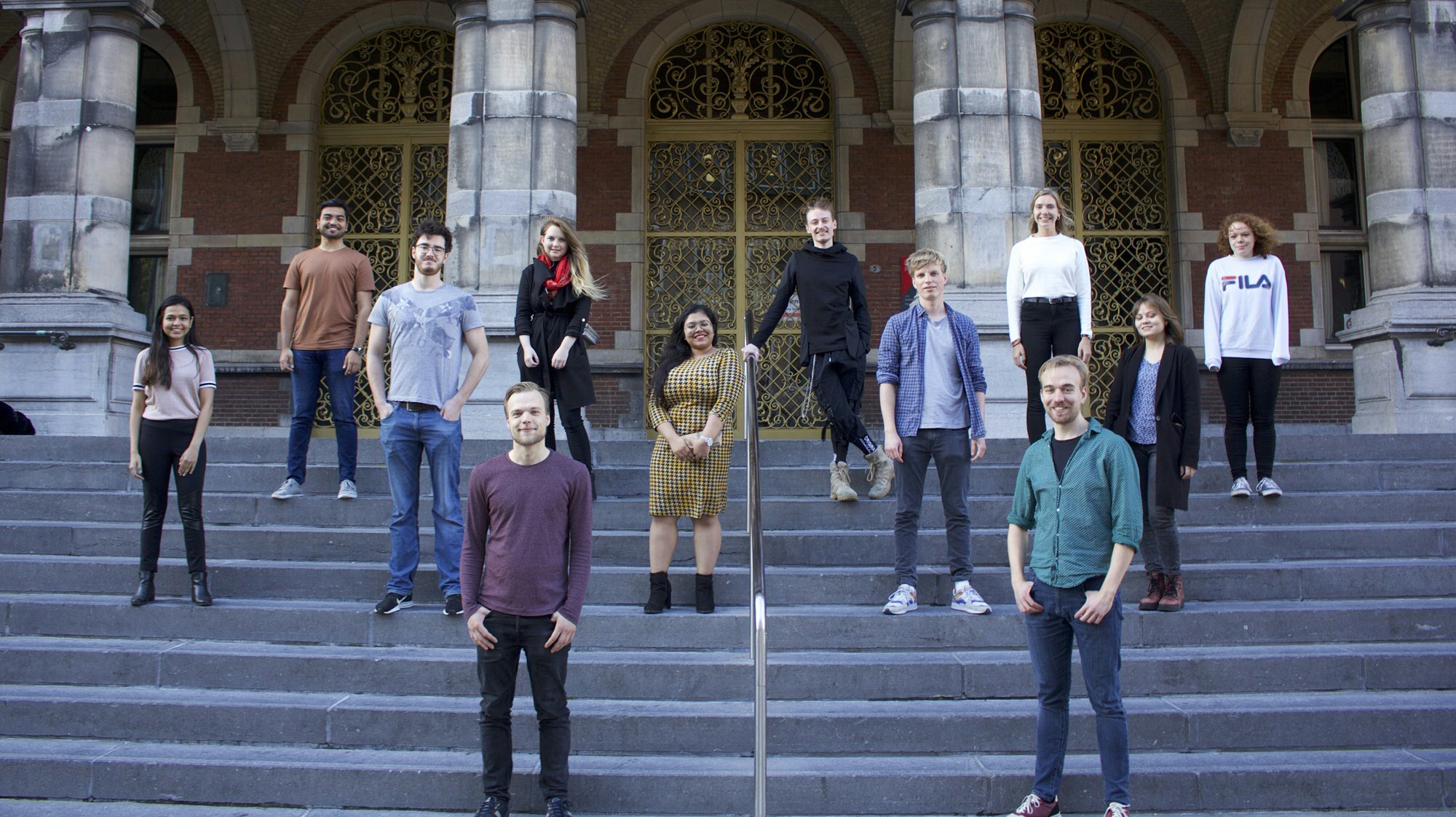Team iGEM Groningen 2020 wins gold medal
Team UG won a gold medal with their RootPatch project at iGEM (international Genetically Engineering Machine) 2020 by MIT Boston. They received the medal during the online closing award ceremony. Winning a gold medal means that the team has performed exceptionally well with their project. The annual jamboree took place online this year due to corona and lasted no less than ten days.

To win a gold medal, as a team you have to convince the jury that you meet all medal criteria. For example, you must be able to demonstrate that your conceived technical system works, that you have investigated and addressed problems in your design and that you have thought about how your project adds value to the world.
Team iGEM Groningen developed a new method to protect plants using neuropeptides. By using neuropeptides, the team was able to manipulate the behavior of the nematode, keeping it away from the plant’s environment without affecting other organisms in the soil. The RootPatch project met all the criteria, which earned them a gold medal. In addition, the team was also nominated for a prize in the categories best project in the food & nutrition track and best wiki. All in all, the participation of the Faculty of Science and Engineering in the iGEM competition was again a success this year.
iGEM competition
The iGEM competition took place online from November 13-22 and was hosted by MIT Boston, United States. In total, there were more than 250 participating teams from all over the world, including five from the Netherlands. iGEM is the international Genetically Engineering Machine competition that is held every year in Boston. iGEM provides multidisciplinary teams of students with the opportunity to find solutions for global problems using synthetic biology.
See also: RootPatch: team iGEM Groningen 2020

| Last modified: | 25 November 2020 10.51 a.m. |
More news
-
03 April 2025
IMChip and MimeCure in top 10 of the national Academic Startup Competition
Prof. Tamalika Banerjee’s startup IMChip and Prof. Erik Frijlink and Dr. Luke van der Koog’s startup MimeCure have made it into the top 10 of the national Academic Startup Competition.
-
01 April 2025
NSC’s electoral reform plan may have unwanted consequences
The new voting system, proposed by minister Uitermark, could jeopardize the fundamental principle of proportional representation, says Davide Grossi, Professor of Collective Decision Making and Computation at the University of Groningen
-
01 April 2025
'Diversity leads to better science'
In addition to her biological research on ageing, Hannah Dugdale also studies disparities relating to diversity in science. Thanks to the latter, she is one of the two 2024 laureates of the Athena Award, an NWO prize for successful and inspiring...
